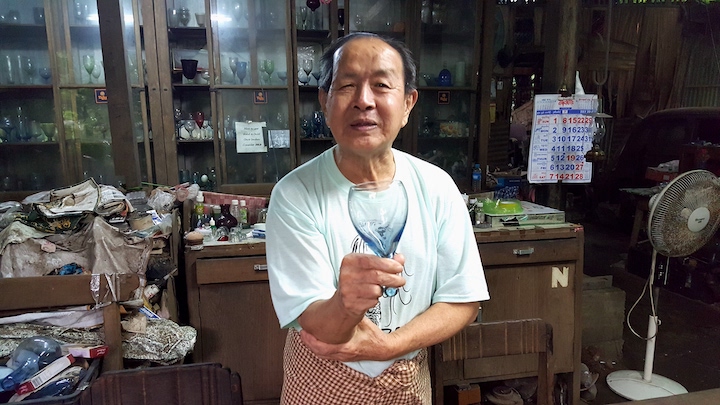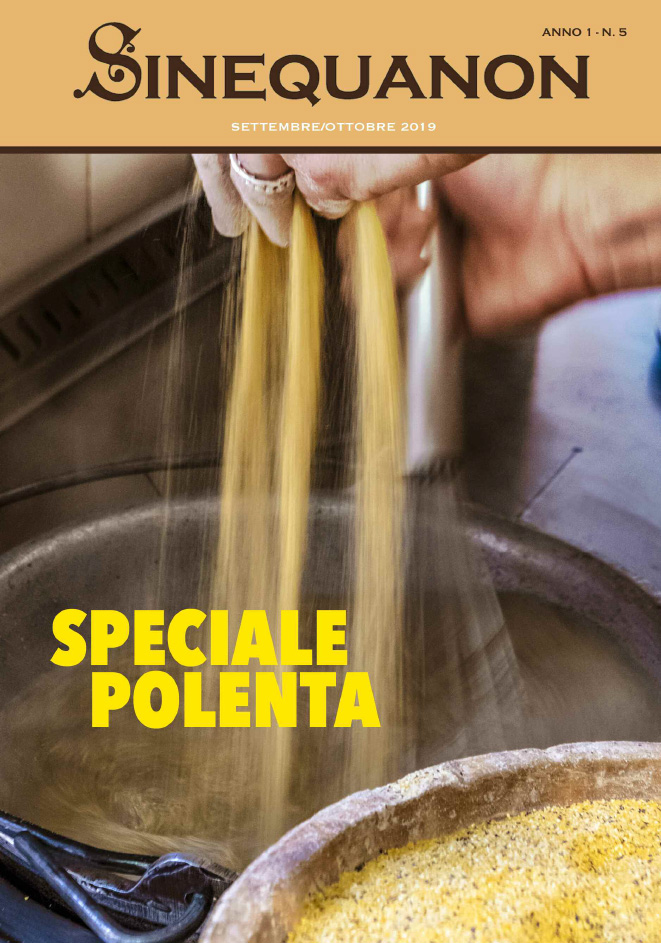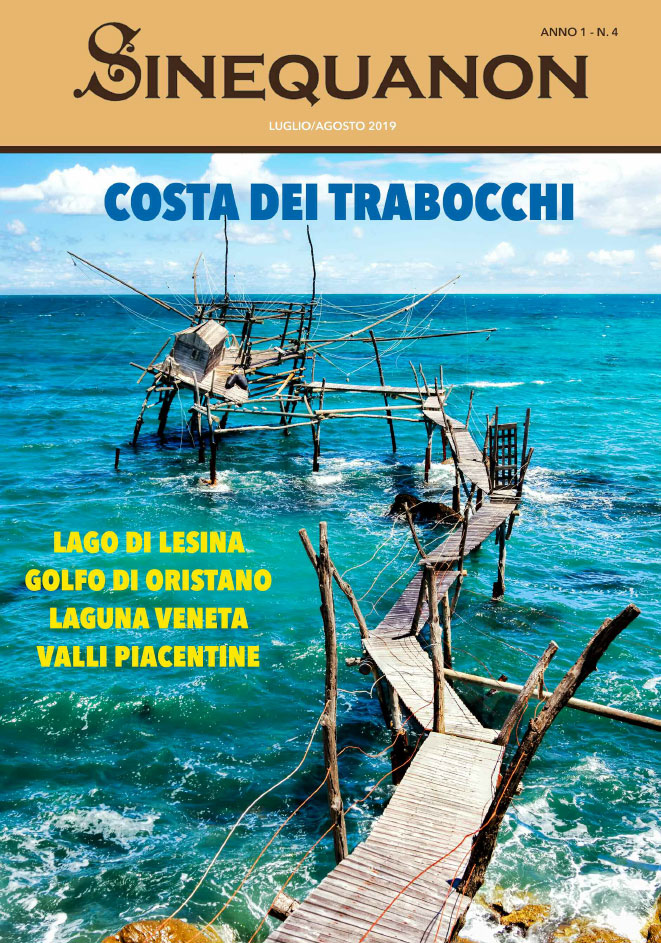Pamela McCourt Francescone
Photos Pamela McCourt Francescone
U Thein Zaw, owner of the old Nagar glass factory in Yangon, recounts the golden years of the family business and how, in 2008, cyclone Nargis destroyed the factory and his father’s dream
“Who could forget that night? It was 2nd of May 2008 and, unlike most of the population, we had been warned by a client that cyclone Nargis was about to hit the country, and so we left the factory. Just as well, because the fury of Nargis swept away everything here in Yangon. The trees and the buildings in which we made our glass, our furnaces, and the storehouses where we had thousands of pieces ready for delivery, were all totally destroyed. And we found ourselves without our business which, a year earlier, we had been forced to curtail due to a huge hike in the price of the gas we needed for our furnaces.”
What is left of the Nagar factory – “My father was born on a Saturday under the dragon zodiac sign and when he opened the factory he called it Nagar which means dragon in our Myanmar language,” – is concealed behind a high wall on a street not far from Inya Lake in a suburb of Yangon, the former capital of Myanmar. U Thein Zaw lives with his sisters and nieces in a house down a pathway covered by the thick vegetation that blankets the large plot. This charming and smiling gentleman, who wears the traditional longyi, speaks beautiful English and tells the story of his family with great passion.
“Our glass – plates, vases, glasses, trays, bowls, statues, crib figures and chess sets among others – was highly regarded. We made glass pieces for wealthy families and embassies, and we also exported to countries like Japan and Thailand.” The factory also designed and made unique and original pieces, and U Thein Zaw showed us two of them: wine glasses with a stem but no base that had been ordered by a lady who was tired of picking up the glasses her husband left lying around the house. “We also designed a double wine glass on a single stem. Celebrating at New Year first you toasted the old year by drinking from one end. Then you turned it around, poured the champagne into the other glass, and toasted the arrival of the New Year.”
“Many famous people have visited our factory including the American astronaut John Glenn, and we also welcomed a group of glass-blowers from Murano. When they saw our work they complimented us saying that our glass – all hand-blown and many pieces inspired by oriental artists – was more beautiful than the glass they produced on their island.” Today in the undergrowth you can see the remains of the sheds, rusty machinery, the old furnaces reduced to rubble and the old and rust-covered 1937 Vauxhall Luton that belonged to U Thein Zaw’s father. And, as far as the eye can see, blue, turquoise, green, purple, brown and transparent chipped, broken, cracked, split, fractured and shattered glass: silent and heart-breaking witnesses to long years of hard work and sacrifice.
“We got our passion for glass from our father who always reminded us that it is the earth that creates glass as it is made of sand with the help of fire,” U Thein Zaw explained, pointing to a dusty sign over the door showing a hand holding sand in which there are sparkling pieces of glass. “My father used to say that we glass-makers are just instruments. Ingenuous instruments I like to add, like my uncle who made the eyes for the Reclining Buddha, one of Yangon’s most famous attractions. Each eye is a metre and seventy centimetres long and my uncle, who was a perfectionist, threw away the first two attempts because he insisted they had small defects and were not worthy of a statue of Buddha.”
U Thein Zaw lives in the old family home, suspended in another world, custodian of an incalculable number of pieces of broken glass that cover everything, from the tables to the shelves and from the furniture to hidden corners. Outside, in the green jungle, the multihued carpet of broken and smashed glass becomes a pretext for a treasure hunt, as it is still possible to find pieces that have not been completely destroyed and with a sander – the only piece of machinery still in use – U Thein Zaw’s nieces lovingly smooth the sharp edges. So for a few dollars, anyone lucky enough to discover this enchanted place can leave with a precious memento, carrying in their hearts the story of the Nagar factory and of U Thein Zaw and his family, the proud and tenacious eyewitnesses of an ancient and lost world.

















